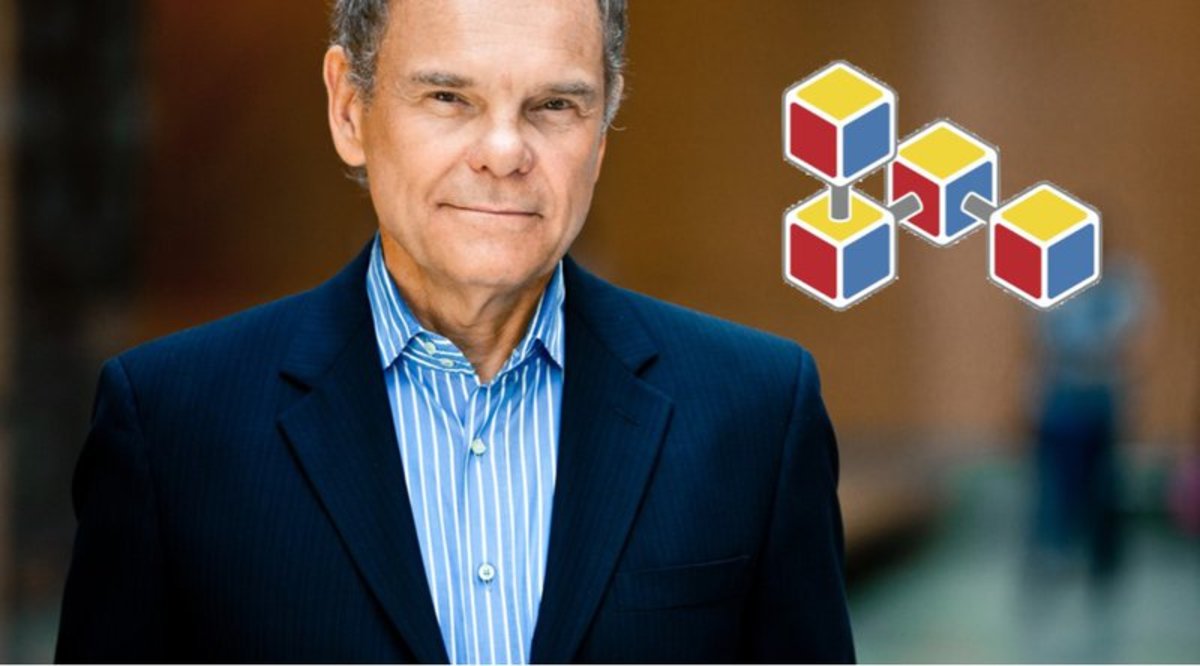
The government of Canada, in partnership with other government bodies and private sector companies, is establishing a Blockchain Research Institute in Toronto to bring together the top minds in public and private sector research to build blockchain-based economies around the world.
Like the early days of the internet when defense and research agencies worked together to build the internet, the new foundation is hoping to engage researchers and companies that are willing to set aside their organizational biases and personal interests to develop the best possible models to go forward building a blockchain-based economy.
Don Tapscott, co-author of the bestselling bookBlockchain Revolution, announced the new initiative yesterday at the DC Blockchain Summit hosted by the Chamber of Digital Commerce. Funding will be drawn from a joint public-private partnership involving governments and some of the world’s biggest corporations, as well as new blockchain startups.
Founding members include Accenture, IBM, SAP, Digital Asset, NASDAQ, PepsiCo, Centrica, Liberty Global, the Government of Ontario, University Health Network and blockchain pioneers Nuco, Paycase, Artlery, Votem, Cosmos, YouBase and WISeKey. This initial list is expected to grow and include members of governments, companies and organizations from around the world.
“Blockchain [technology] has the potential to address some of the world’s most pressing challenges — from streamlining trade, to establishing trust in transactions, to tracing provenance for food safety,” said Ross Mauri, general manager of z Systems at IBM. “By working with top experts from around the world, we’ll be able to take full advantage of blockchain [technology]’s inherent strengths — an openly governed, collaborative approach — to make global business more efficient and transparent for consumers.”
Juergen Mueller, SAP’s chief innovation officer, stated, “We believe blockchain is a transformative technology for businesses. The Blockchain Research Institute with its brilliant team will deepen and enrich the knowledge about blockchain [technology].”
Affiliate organizations include Hyperledger, The Chamber of Digital Commerce, coala.io and the newly created Enterprise Ethereum Alliance.
In making the announcement, Tapscott noted the advantages Canada already has with its Tech North corridor between Toronto and Kitchener-Waterloo, with some of the world’s leading blockchain researchers and startups.
“The establishment of a research institute to study, identify and report at a more granular level will help stakeholders at all levels,” said Kyle Kemper, executive director of the Blockchain Association of Canada. “The fact that this initiative is being led by Canadians in partnership with experts worldwide is a testament to the fact that Canada is leading the blockchain revolution.”
Canada has a history of working internationally far beyond its relative size, so this initiative fits well in the Canadian tradition. The government of the province of Ontario, where the institute will be located, is one of the founding members.
“Blockchain technology has the potential to help Ontario build an innovation powerhouse and significantly improve government services too,” said the province’s Minister of Finance, Charles Sousa. “The new Institute, based in Ontario, will bring together the leading thinkers, researchers and entrepreneurs in the blockchain space and we’re proud and enthusiastic to support it.”
“Canada has been known to act globally, and this institute is the next generation’s pathway to global transformation,” said Joseph Weinberg, CEO of Paycase Financial, a blockchain-focused payments company and founding member. “We are taking on the next era of the internet with our intellectual resources and talents, and bringing Canada back onto the world stage by leading the Blockchain Revolution.”
Rationale
In a recently released report titled “The Blockchain Corridor: Building an Innovation Economy in the 2nd Era of the Internet,” co-authors Don and Alex Tapscott stated:
“The second generation of the internet presents Canada with a unique opportunity to lead this [blockchain] revolution, and to chart a path to an innovation economy built to last.
“It’s now time to take the next step and conduct deep research into killer applications — identifying the most important opportunities for blockchain [technology] in business and government and drawing the roadmap for how to get there.”
The report, funded by Canada’s Department of Innovation, Science and Economic Development, called on the federal government to participate in such a foundation and described in detail how the research institute would work.
“Through a series of major research projects led by global experts, we will identify and explain key application opportunities, issues, strategies and approaches that enable companies and governments to capitalize on this emerging technology.”
Implementation
The Blockchain Research Institute’s main goal is to enable a research platform that will allow public and private sector researchers from around the world to pool their resources and work together on the best ways to go forward in building blockchain-based model economies.
Not just a research institute, the agency will actively work on strategies with startups to make a blockchain economy happen. This proactive development role will involve experts and startups working together on practical solutions in a “blue-ribbon” style environment: one where participants from diverse — and often competing — backgrounds and positions are free to experiment with, propose and debate new ideas in a collaborative setting.
“This has the potential to encourage unprecedented collaboration through its function as a research hub,” said Amber D. Scott, CEO of Outlier Canada. “This is a real paradigm shift and it’s exciting to see such a diverse group coming together to support progress. We all benefit when we can focus on innovating rather than getting bogged down in territorial and jurisdictional issues.”
The initial program will begin on April 3, 2017, and will be completed on December 20, 2017. Projected “Program Deliverables” will include reports and tools that disseminate program conclusions among member organizations, monthly webinars and executive briefings. A Program Summit for institute members will be held in the spring of 2018.









